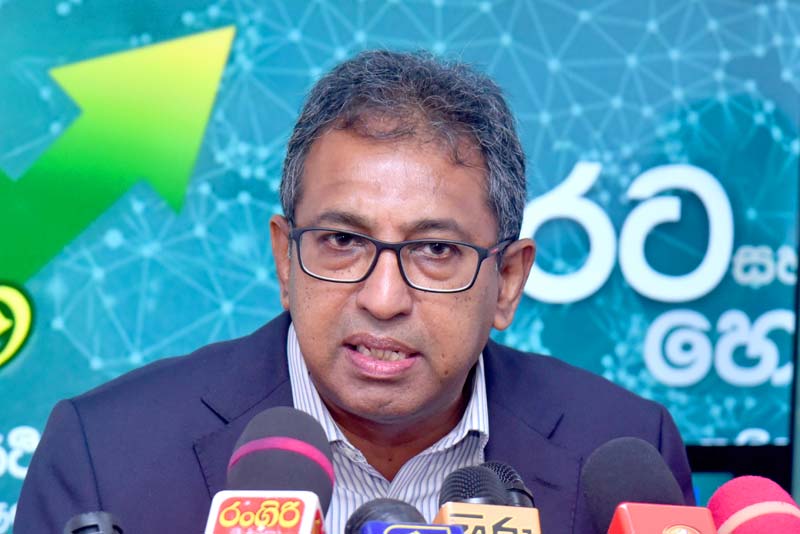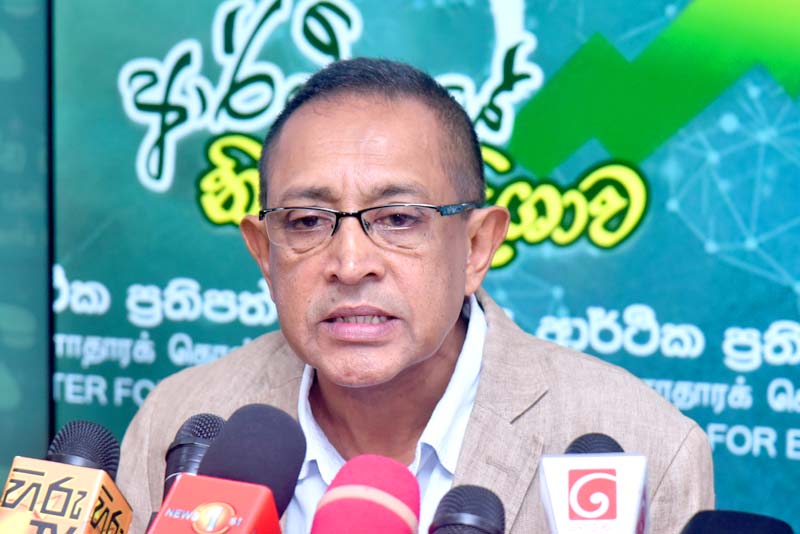Tuesday Feb 24, 2026
Tuesday Feb 24, 2026
Thursday, 1 August 2024 04:26 - - {{hitsCtrl.values.hits}}

SJB MP Dr. Harsha de Silva

SJB MP Kabir Hashim
By Darshana Abayasingha
The main Opposition, Samagi Jana Balawegaya (SJB) yesterday said it is against the Government legislating tax-based actions to stabilise the economy over the short-term.
Addressing the media, SJB MP Dr. Harsha de Silva said the Government has agreed to several draconian tax measures together with the IMF over the short-term, and this has caused immense hardships to the public. The SJB said it will present a roadmap to alleviate their suffering soon after the Presidential election.
“We will engage the IMF on what aspects need amendment. Then we will educate the public and engage them on what benefits the public will accrue through our party’s process. We will present a written plan to the people that will constitute a medium and long-term plan to grow revenue and reduce prices. People are wondering how to get over the next three months, rather than thinking of the next five years. On the night of 21 September, under Sajith Premadasa, we will roll out these measures to provide relief to the people in the short-term. They have suffered enough,” De Silva stated.
The SJB MP noted that inflation has lessened, but price pressures and high taxes continue to heap burden on the people. He also remarked the SJB is not opposed to every action of the Government’s economic policy, and pointed out that as a responsible opposition the party had supported the State Monetary Bill in Parliament last week.
SJB MP Kabir Hashim, said out of Sri Lanka’s 22 million populace, 7 million face difficulty in meeting their daily food and nutritional requirements, and urged the Government to control the price of rice and eggs to ensure affordability and health. He stressed that the control exerted by certain monopolistic groups in the market must be broken.
Hashim also said the SJB will focus on building an export-centric economy despite certain challenges posed via the regulatory framework, and boost productivity to catch up with countries like Vietnam that have overtaken Sri Lanka, to position themselves as a significant player in the global economy.
“We must promote economic equality to ensure sustainable growth. The richest 1% own close to 30% of the country’s wealth. There must be a degree of fairness in both earnings and wealth distribution. We will implement a progressive tax system to reflect this and address disparities,” Hashim added.
- Pix by Ruwan Walpola